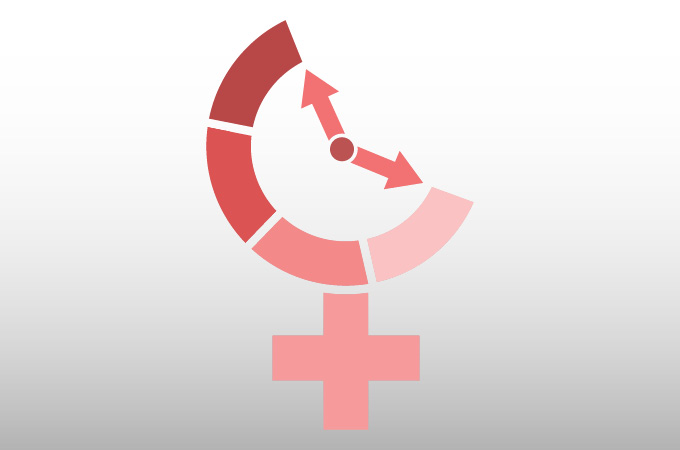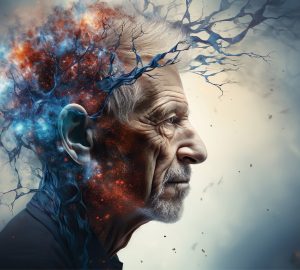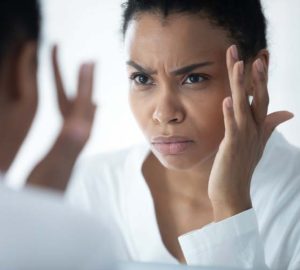Often referred to as “the change,” menopause can seem daunting and mysterious. And while it is private and personal for every woman, it’s also a subject we need to be unafraid to demystify. With that in mind, T&S talked with Dr. Becky Lynn, owner of Evora, a concierge gynecological practice, and a menopause and sexual medicine specialist.
the basics
What is menopause?
The term refers to the natural process when women’s ovaries stop producing estrogen and progesterone, ending the menstrual cycle. “Menopause is officially diagnosed when you’ve gone a year with no periods,” Lynn explains. “However, since there is a natural, gradual decline in hormone production, symptoms often can begin occurring several years before the last period,and they can continue several after.”
When do most women go through menopause?
In the United States, the average age is 51.
Why do some women experience it sooner?
Early menopause refers to when women go through the process before 45. If a woman’s menstrual cycle ends before she turns 40, Lynn says it’s important to see a physician because it could be related to other health issues. “The No. 1 factor is genetics,” she explains. “It definitely matters when your mother went through menopause, and studies have shown that race also can be a factor.” She adds that certain medical conditions, cancer treatments and lifestyle choices like smoking also can have an impact.
What is perimenopause?
It’s the transition period that begins when women’s ovaries gradually start to produce less hormones, usually four to ten years before menopause. Lynn says it’s most common in women in their 40s. “It’s all related to a decline in estrogen, so symptoms can be very similar to menopause,” she explains.“The most common symptom is irregular periods. Women’s menstrual cycles can go a little haywire. They may have more frequent flow or skip months all together.”
symptoms & treatment
As a natural process, menopause is not a condition that can be cured, but Lynn says the physical symptoms can be treated individually.
Hot flashes and night sweats:
“They are not dangerous, so if you aren’t bothered by them, you don’t need to seek intervention,” Lynn says. “They can be treated with hormones, which also can help with bone health and preventing osteoporosis and keeping skin soft. That said, there are different risks associated with each hormone therapy, so it’s important to have an in-depth conversation with your physician.” Antidepressants also can be used to treat hot flashes, and a
new non-hormonal medication is expected to be released in the near future.
Low libido:
“This is partly because menopausal women have lower testosterone levels, but it’s a complex issue that is not due to just one thing,” Lynn says. Treatment can take many forms, including looking at factors like mental health and the state of personal relationships. While there are medications on the market for women’s libidos, Lynn points out that they are approved only for pre-menopausal women.
Vaginal dryness:
This can also impact womens’ libidos because it leads to painful intercourse. “Dryness is a symptom that may occur up to five years after the last period, and many women don’t connect it to menopause,” Lynn explains. “The best treatment is a low dose of vaginal hormones. They are minimally absorbed into the bloodstream, so they don’t increase risk for breast cancer, blood clots or cardiovascular disease, and they are very helpful to maintaining vaginal and urinary health.”
Weight gain:
Like a lower libido, menopausal weight gain can be caused by a variety of factors, including a slower metabolism and increased insulin resistance. “Your body has to pump out more insulin to get glucose into cells, and that signals it to deposit fat,” Lynn says, adding that the lack of estrogen also changes where fat is distributed. “Instead of going to the breasts, hips and buttocks, it’s more in the belly, like how men gain weight.” While hormone therapy can help with the problem, Lynn notes that it needs to be part of a weight loss management plan that includes a healthy diet and exercise.
Mood swings, depression and anxiety:
Maintaining mental health is important. “During menopause, there are usually a lot of other stressors in women’s lives,” Lynn says. “They may have financial concerns about retirement, be caring for elderly parents or be coping with adult children leaving home.”
Short-term memory loss:
“A lot of my patients are worried about the brain fog they experience,” Lynn notes. “The best way to combat this is to exercise your mind.” She suggests doing activities like crossword puzzles or learning a foreign language to keep mentally active and engaged.








